Life
Sign up for our newsletter
We summarize the week's scientific breakthroughs every Thursday.
-
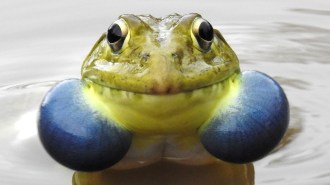 Animals
AnimalsFrog ribbits erupt via an extravagant variety of vocal sacs
Shape matters as well as size in the great range of male frog show-off equipment for competitive seductive serenades.
By Susan Milius -
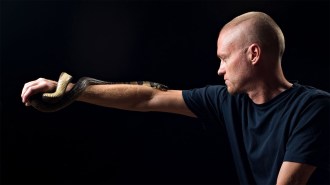 Health & Medicine
Health & MedicineA man let snakes bite him 202 times. His blood helped create a new antivenom
A new antivenom relies on antibodies from the blood of Tim Friede, who immunized himself against snakebites by injecting increasing doses of venom into his body.
By Meghan Rosen -
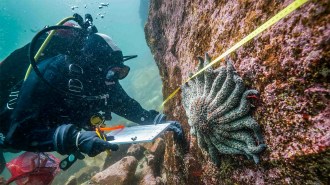 Animals
AnimalsCool water could protect sea stars from a mysterious disease
Sunflower sea stars discovered taking refuge in fjords may offer clues to saving the critically endangered species from sea star wasting disease.
-
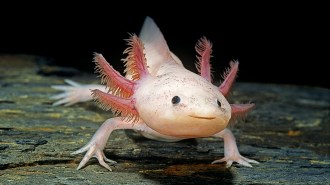 Animals
AnimalsThe axolotl is endangered in the wild. A discovery offers hope
Introducing captive-bred axolotls to restored and artificial wetlands may be a promising option for the popular pet amphibian.
By Anna Gibbs -
 Archaeology
ArchaeologyA Pueblo tribe recruited scientists to reclaim its ancient American history
DNA supports modern Picuris Pueblo accounts of ancestry going back more than 1,000 years to Chaco Canyon society.
By Bruce Bower -
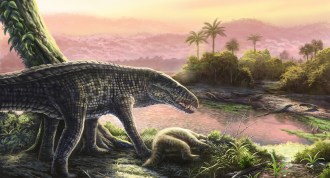 Paleontology
PaleontologyThese crocodile-like beasts reached the Caribbean, outlasting mainland kin
Knife-toothed reptiles called sebecids went extinct on the mainland 10 million years ago. New fossil evidence puts them on an island 4 million years ago.
By Jake Buehler -
 Oceans
OceansHow will the LA fires affect the ocean? These researchers are racing to find out
Scientists aboard a research vessel near Los Angeles collected ash, air and water samples as fire blazed on the hills before them in January.
-
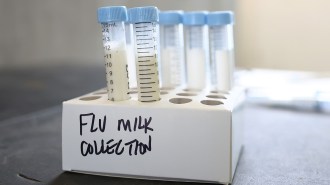 Health & Medicine
Health & MedicineBird flu in cows shows no signs of adapting to humans — yet
Easy replication in cattle mammary glands means H5N1 bird flu is under no evolutionary pressure to adapt to spread easily in humans.
-
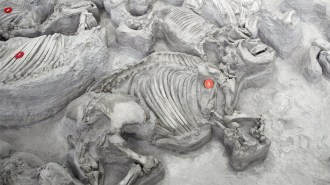 Paleontology
PaleontologyAncient, water-loving rhinos gathered in big, hippolike herds
Squat rhinos lived in North America about 12 million years ago, congregating in huge, water-bound herds much like modern hippos.
By Jake Buehler -
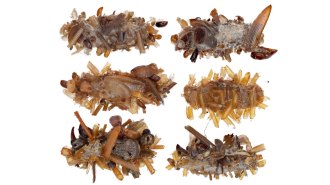 Animals
AnimalsThis caterpillar wears the body parts of insect prey
Dubbed the “bone collector,” this caterpillar found on a Hawaiian island disguises itself while stalking spider webs for trapped insects to eat.
-
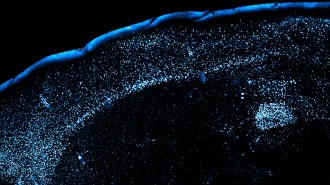 Neuroscience
NeuroscienceMouse brains hint at why it’s so hard to forget food poisoning
Scientists mapped a neural circuit that associates an unfamiliar flavor with food poisoning symptoms in mice.
By Elise Cutts -
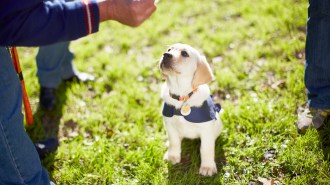 Animals
AnimalsHow science can help you train your puppy
Puppies with a good grasp of basic gestures, self-confidence and impulse control grow into well-behaved adults, a new study suggests.